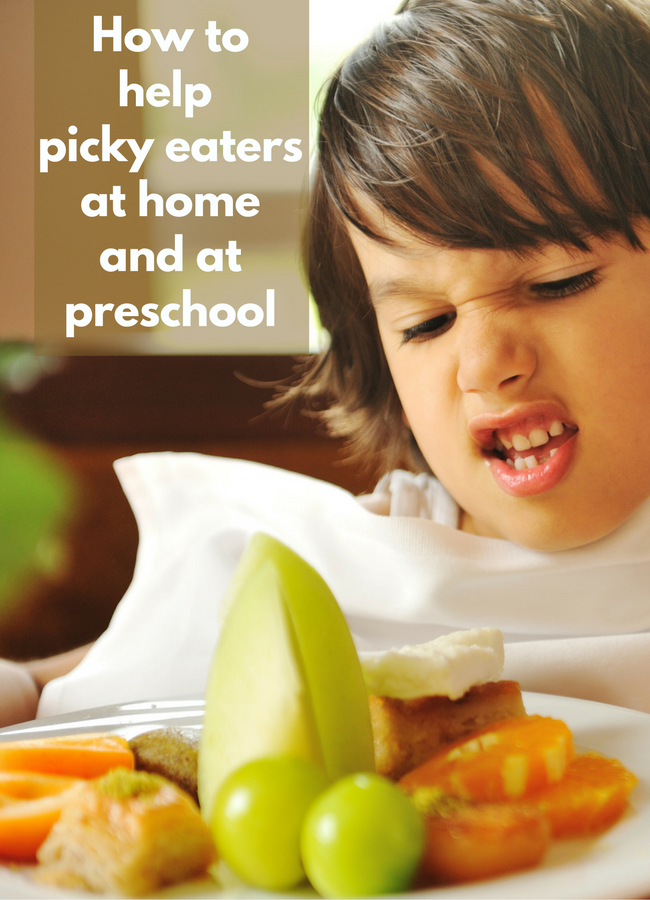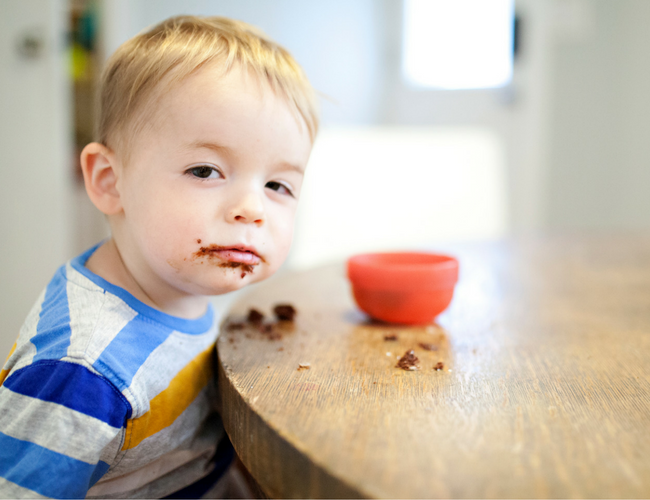
At this time of year, picky eating seems to bubble to the top of the issues probably because parents are taking their young kids to family gatherings and getting judged like crazy about what their child is or isn’t eating. Can we just stop that? I am asked a lot is how to handle picky eaters. Luckily I have experience with this both as a teacher and as a mom. The way I handle it is a little different in each case, but the foundation is the same; respect the child.
Why are kids, picky eaters?
There are lots of reasons.
Sensory
They are just more sensitive than we are. Children have a more sensitive palate and taste buds. They literally taste the food more than adults do so flavorful foods can be overwhelming. The same goes for the sense of smell, kids generally have a more sensitive nose than us and odd food smells ( cauliflower? fish?) can turn kids off of the food itself.
The texture is off-putting. Neither of my kids will touch mashed potatoes and refused them even as babies. The texture just doesn’t feel good. We all have our sensory quirks ( I can’t eat soup with metal spoons) and many children also have sensory processing issues more serious than quirks.
You probably don’t remember being so sensitive because over the past 20, 30, 40+ years you have slowly developed tastes for more bitter, less sweet, and more flavorful foods.
Control
Young children can control three things; and even those only to a point. Food, sleep, and going to the bathroom. A lot of children explore the use of control as they develop and some with varying levels of anxiety certainly do. When you need control to feel secure, you will control what you can and for some kids that come to fruition at the dinner table.
Conditioning
One day in my PreK class ( which was at a daycare and provided meals) I asked a student if he was going to eat his Mexican rice. “Nope cause you don’t give me a candy for eating veggies.” Interesting. So after discussing with his parent, it came to light that he got candy every time he ate veggies because it was such a battle. I get it parenting is hard, and you do what you need to do, but sometimes there are repercussions like this. I won’t tell a parent what to do because I have used bribery from time to time, just know what you could be setting yourself up for.

So what do we do?
At Home
- Be patient and stay calm, try not to take their refusal personally. Remember most kids, not just “picky eaters” need to be exposed to new foods multiple times before most will try it.
- Ask the child about why they don’t like the foods they refuse. For my son who loved pre-prepared food ( and I did not like relying on them for him), it turned out he liked that he knew what to expect. I started more closely following recipes, so the taste was the same every time we had a dish and things improved a little.
- Think of yourself as the buffet offering healthy new foods along with food that is in the child’s comfort zone.
- Do not let this be a battle; no one wins this battle.
- Involve the child in cooking activities that use new foods. Cooking together makes a huge impact!
- Praise but do not reward trying new foods, that can easily devolve into conditioning the child to expect rewards.
- Try new restaurants, food trucks, and vendors to model trying new foods yourself!

At School / Daycare
- Don’t get into a power struggle – offer and never force.
- Do not shame the child ” Look, Hailey, everyone else likes olives.”
- Do not keep a child at the table until they are “done” this creates power struggles that are unhealthy.
- If possible sit near the child with foods they refuse on your plate to model eating them.
- Offer children the chance to smell or touch the food without eating it. Let them explore. Praise this exploration.
- Incorporate food and cooking activities into your classroom.
- Communicate with the parents, follow their lead but be clear about what you can and can’t do at school ( rewards and punishments especially).
What did I miss? What would you add to my tips?



Mamie says
My three year old was having nightly meltdowns as soon as he realized dinner was almost ready. I was dishing up the food on his plate at the stove and giving him his plate at the table. He would go many nights not eating anything at dinner. I started scaling back the amount of food on his plate, but that only helped calm him a little bit. Then I tried putting the food on the table in the dishes they were cooked in and allowed him to dish up his own food. His mealtime meltdowns completely stopped within a couple days! Now he likes me to dish his food up for him at the table, which I’ll gladly do to avoid the misery we were used to before! Thanks for the other tips, too. You never know what will help until you try, and sometimes it takes a LOT of trial and error 🙂